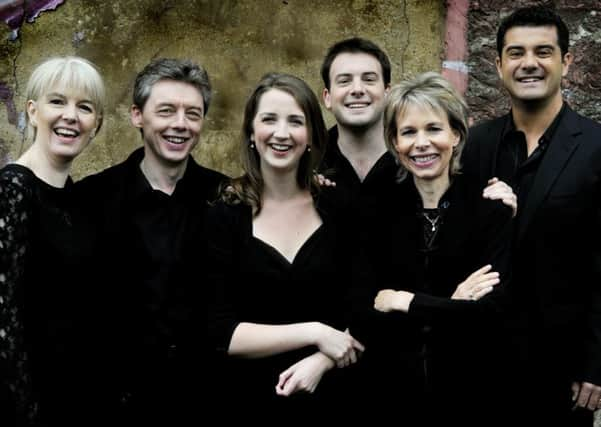Cottier Chamber Project survives cash woes to present another fine programme


Buoyant and resourceful as ever, founder and director Andy Saunders has worked his magic against unexpected odds to ensure this year’s 50-plus events will go ahead as planned.
The issue has centred on funding – or rather, an unfortunate misdirection of expected funds. “We were dealing with the hangover from a funding gap left by the unintended loss of two sponsors,” he explains. “Unfortunately one gave their money to the wrong festival, and the other gave more than it thought to a project run by a large national company. We suffered.”
Advertisement
Hide AdAdvertisement
Hide AdThe heartening thing is, says Saunders, that all the performers rallied round him. “They’ve been great, incredibly sympathetic, and so keen to ensure the project keeps going. It feels like a real buy-in from the whole community.”
And among them are some who could so easily have been snapped up elsewhere. Finnish violin virtuoso Pekka Kuusisto, for instance, teams up with the amazing Alec Frank-Gemmil (SCO principal horn) and pianist Tamara Stefanovich in trios by Brahms and Ligeti, before Kuusisto moves into a late-night session with well-known folk musicians (19 June).
The ebullient Scottish ensemble Concerto Caledonia, in daily lunchtime concerts spread over two weeks, explores the Baroque eccentricities of Heinrich Biber (the Mystery Sonatas) and one Elisabeth Jacquet de la Guerre, known for a style of composition that provided the notes and harmonies, but left the rhythmic values up to the players – aleatoric before her time.
Elsewhere, the programme is packed with early and late evening chamber music, a lunchtime talk series Cultural Encounters in week three, as well as film and dance events. Opera was introduced to the programme for the first time last year, and proved to be a huge hit. It’s a notoriously expensive thing to programme, but – in spite of those funding headaches – it’s back on the bill again for 2016.
One of the two semi-staged productions will be the world premiere of Alasdair Nicolson’s chamber opera The Iris Murder. Written for the Hebrides Ensemble, which celebrates its 25th birthday this year, to a libretto by New Zealand-born poet John Gallas, it’s a sinister tale of evil acts wrapped in a mysterious veil of ambiguity. “It’s exactly what I was hoping John would come up with,” says Nicolson, who first met him last year when he was conducting an oratorio Gallus had written the text for. “It’s kind of Edgar Allan Poe: that macabre, Gothic, fairy tale world where you’re not quite sure if things are real or not.”
The premiere takes place in Cottiers on Friday 10 June and lasts an hour. There are three characters – sung by Elizabeth Llewellyn, Christopher Bowen and Andrew Fellows – who inhabit a moonlit forest setting, and a four-part ensemble directed by Hebrides cellist and artistic director William Conway. There are similarities in the instrumental writing, says Nicolson, to Stravinsky’s A Soldier’s Tale.
“It’s a very theatrical piece with an odd collection of instruments – cello, percussion, accordion and bass clarinet – and I wanted to create that A Soldier’s Tale ensemble effect where they all have to work very hard.” It’s also an ensemble ready-made to create the darkness and mystery that Nicolson says dominates the piece.
Advertisement
Hide AdAdvertisement
Hide AdAfter Cottiers, The Iris Murder will be staged at the Traverse Theatre in Edinburgh (12 June) before heading to Orkney and the St Magnus Festival where Nicolson is festival director.
The other opera at Cottiers (13 June) is Astor Piazzolla’s only attempt at the genre in the 1960s, Maria de Buenos Aires. The surreal plot centres on a prostitute who inhabits the city’s underground. “It’s a complete contrast to The Iris Murder,” says Saunders. A specially-made film – “grainy street scenes of Buenos Aires” – provides the locational backdrop to its three main characters and plenty of trademark Piazzolla tango dancing.
It’s all part of one of the busiest festivals around. And it’s to Andy Saunders’s great credit that he beat the odds and made it happen. n
The Cottier Chamber Project, various venues, Glasgow, 3-25 June, www.cottierchamberproject.com